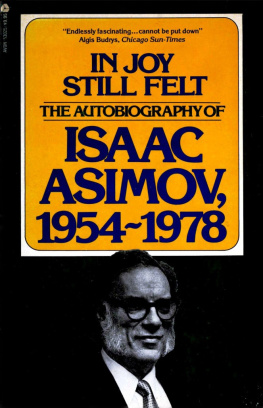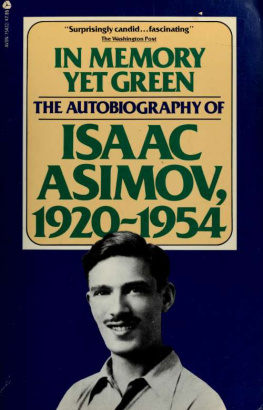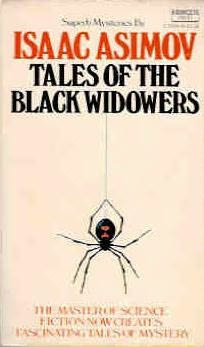Routledge Revivals
Kidnappers in Philadelphia
Kidnappers in Philadelphia
Isaac Hoppers Tales of Oppression 1780-1843
Daniel E. Meaders
First published in 1994 by Garland Publishing, Inc.
This edition first published in 2018 by Routledge
2 Park Square, Milton Park, Abingdon, Oxon, OX14 4RN
and by Routledge
52 Vanderbilt Avenue, New York, NY 10017, USA
Routledge is an imprint of the Taylor & Francis Group, an informa business
1994 Daniel E. Meaders
All rights reserved. No part of this book may be reprinted or reproduced or utilised in any form or by any electronic, mechanical, or other means, now known or hereafter invented, including photocopying and recording, or in any information storage or retrieval system, without permission in writing from the publishers.
Publishers Note
The publisher has gone to great lengths to ensure the quality of this reprint but points out that some imperfections in the original copies may be apparent.
Disclaimer
The publisher has made every effort to trace copyright holders and welcomes correspondence from those they have been unable to contact.
A Library of Congress record exists under ISBN:
ISBN 13: 978-0-367-10968-4 (hbk)
ISBN 13: 978-0-429-02412-2 (ebk)
STUDIES IN AFRICAN AMERICAN HISTORY AND CULTURE
edited by
GRAHAM HODGES
COLGATE UNIVERSITY
A GARLAND SERIES
KIDNAPPERS IN PHILADELPHIA
ISAAC HOPPERS TALES OF OPPRESSION 17801843
DANIEL E. MEADERS
Copyright 1994 Daniel E. Meaders
All rights reserved
Library of Congress Cataloging-in-Publication Data
Hopper, Isaac T. (Isaac Tatem), 17711852.
Kidnappers in Philadelphia : Isaac Hoppers Tales of oppression, 17801843 / [compiled by] Daniel E. Meaders.
p. cm.
Studies in African American history and culture
Originally published in the National anti-slavery standard as a column entitled Tales of oppression, beginning Oct. 22 1840.
Includes bibliographical references (p. ) and index.
ISBN 0-8153-1776-X (alk. paper)
1. Fugitive slavesPennsylvaniaPhiladelphiaHistorySources. 2. Afro-AmericansPennsylvaniaPhiladelphiaHistorySources. 3. Philadelphia (Pa.)HistorySources. 4. Philadelphia (Pa.)Race relationsSources. I. Meaders, Daniel, 1945 . II. Title.
F158.9.N4H671994
974.81103dc20
94-10190
CIP
Printed on acid-free, 250-year-life paper
Manufactured in the United States of America
This book is dedicated to Wayne Gibbons, Charles Williams, Andy Gill, Fred Wallace, Tarina Meaders, and the memory of Gloria Williams.
I most sincerely believe that slavery is the greatest sin the Lord Almighty ever suffered to exist upon this earth. As sure as God is good and just, he will put an end to it; and all opposition will be in vain.
Isaac Hopper
John Blassingame contributed to this work by first urging me in his graduate seminars to examine new kinds of sources viewed from different angles. I am deeply indebted to him, for he assigned me the enviable task of collecting and verifying Hoppers Tales of Oppression. Grateful acknowledgments to Michelle Brenner for her computer expertise, and to Madeline Himy who typed more drafts than she cares to remember. I owe a debt to Elizabeth Vasile for her editorial assistance, and to Estelle Paris who was involved in the project in its early beginnings. I owe special thanks to Dr. Martha Ashby for her thorough reading of the manuscript. Finally, I am grateful to Dr. Graham Hodges of Garland, who believed in the project and was a decisive factor in making sure that it saw the light of day.
On November 6, 1802, the Poulsons American Daily Advertiser, a local Philadelphian newspaper, published an editorial, Melancholy Effects of Slavery, that accused James Ewing, Trentons mayor, of having ordered several blacks, including one Romaine, along with his wife and his child, all of whom belonged to a French planter, to leave New Jersey and return to St. Domingo where they had lived as slaves. After boarding a Trenton stagecoach, the blacks and their owners rode to Philadelphia where they stopped to eat. Somehow, Romaines wife and child slipped away, but before Romaine could escape, the planters escorts ordered him into the stagecoach. Romaine walked a few steps, and with a pruning knife, which seemed, wrote the editor, prepared for the purpose, cut his throat in so shocking manner that he expired in a few minutes after on the pavement.1
In his anonymous editorial, Isaac Hopper, a thirty-one year-old Quaker, alias Friend Hopper, who was a member of the Abolitionists, suggested that Mayor Ewing should bear responsibility, at least partly, for Romaines death, and that the legality of the permission granted by the mayor of Trenton, is much questioned and will be investigated.2 On December 10, 1840, Isaac Hopper published a story about Romaine in the National Anti-Slavery Standard noting that the circumstances here related occurred many years ago, but they made such a deep impression on my mind, that they are now as fresh before me as though it was but yesterday.3
Lydia Maria Child, the National Anti-Slavery Standards editor, encouraged Hopper to write about his experiences assisting blacks pursued by their former masters, hoping that blacks such as Romaine would be immortalized. Child had arrived in New York from Massachusetts in the Spring of 1840 and needed a place to stay and took up my abode with the family of Isaac Hopper.4 Because Hopper needed a job, Child hired him in June of 1840 as a treasurer and a book agent for the Standard, a paper that represents itself before the world as the official organ of the American Anti-Slavery Society. On June 11, 1840, Hopper penned his first narrative, An Interesting Case of Escape. In September of 1840, one reader in a letter to the editor maintained that Friend Hopper had an immense fund of the most graphical interesting anecdotes, stored away in his excellent memory, and his tact in the relation of them never fails to exite the liveliest attention. Eventually, Hopper received space to print his stories serially. On October 22, 1840, Hopper penned the first of seventynine narratives in a bi-weekly column called the Tales of Oppression. The Standard said, they will be read we have no doubt with deep interest.5
Drawn from authentic sources, relating to the sufferings of the slaves and their efforts to escape from their fetters, and having a great abundance of such facts in my possession, I have concluded to offer them for publication in your columns, reported Hopper in his preface to the Tales of Oppression. The majority of the Tales featured black men: 55 (70%) referred to them; whereas 17 (22%) of the stories referred to black women, 4 (5%) to white men, and 3 (4%) to black children. Sixteen (29%) of the black men were free or passing for free; 10 (59%) of the women fell into the same category. Thirty-eight (40%) of the men were fugitives, as were 11 (67%) of the women. Over 90% of the blacks gave no ages or Hopper overlooked them; seven of the 11 blacks that did mention their ages were between the age of 25 and 35. About 75% of the blacks featured in the















